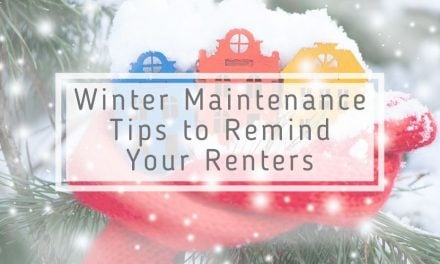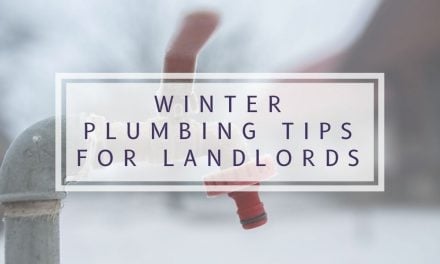 Whether you made a deliberate choice to expand your investment portfolio, or you inherited a property you want to rent out, if your property is located outside of your home town, you will find additional challenges as you take on the role of long-distance landlord.
Whether you made a deliberate choice to expand your investment portfolio, or you inherited a property you want to rent out, if your property is located outside of your home town, you will find additional challenges as you take on the role of long-distance landlord.
One of the biggest challenges for long distance landlords involves the hands-off approach you will be forced to take. Living far away means you won’t be able to make regular visits to your property to ensure your tenants are taking care of the unit and following lease terms. If a maintenance “emergency” comes up, you can’t pop over to assess the severity and potential damage it may cause. You have to trust your tenants and trust your vendors to not take advantage of your distance.
Many real estate investors and rental property owners have found success in managing rental properties from afar. The key to positive cash flow and stress free management for long distance landlords can be found in the guide below.
- Get a Trustworthy Team – Working with people you trust is the most crucial step of any business, especially for off-site owners. You should have a list of vendors you have vetted personally to ensure their integrity when fixing maintenance issues at your rental property. You will also benefit from getting to know the neighbors and community members located near the rental property, you never know when you will need a lawyer, accountant, cleaning crew, or painter. Neighbors can be excellent resources for informing you if they notice any suspicious behavior at your property.
- Have Local Connections – A long distance landlord will find success if they have a friend or family member they can rely on in the area. This friend can help you conduct routine inspections, check on maintenance issues, or show a vacant unit if you aren’t able to be there.
- Automate Rent Payments – Living far away means rent collection will require additional energy since you do not have a local address for your tenants to send rent every month. You can ask for mailed rent checks, but risk the potential “lost in the mail” excuse; whether falsified or real, “lost in the mail” means waiting even longer for another check to arrive. Alternately, modern trends in property management technology has made collecting and tracking rent payments online extremely easy. Property management software allows tenants to pay rent via ACH or credit card, so rental income shows up directly in your account without having to wait for a check in the mail. Online rent payments is convenient for renters and more reliable for long distance landlords.
- Prioritize Inspections – If your tenant knows you live far away, they may be tempted to bend the rules, thinking you won’t find out about it. Routine inspections of the unit allow you check out the condition of the property, conduct seasonal maintenance, and ensure lease terms are followed. There are four main inspections every landlord should perform on their rental property and long-distance landlords will find them especially important.
- Communicate – Keep your lines of communication open so tenants don’t feel neglected or ignored. At the beginning of tenancy outline the best way your tenants can reach you-by phone, email or text message; and ask them their preferred communication method. If your tenants know you live far away, regular communication demonstrates your commitment to hands-on management.
- Find Great Tenants (and keep them) – Every landlord’s wants awesome tenants; the ones that pay rent, keep the place clean, report water leaks, and don’t complain. These tenants are especially important to long-distant landlords who are unable to regularly check up on the property. The only way to find trustworthy renters is by screening your tenants to discover their financial stability and rental history. Check out all potential tenants’ credit report, rental references, income sources, and criminal records before signing a lease. Past due debts, bad references, evictions, and criminal conventions should be red flags about the type of renter they could be.
- Get Landlord Insurance – Insurance policies designed specifically for landlords provide added protection for financial loss and obligations associated with your rental properties. While some landlords assume they can rely on their standard homeowners insurance to cover their rental units, homeowners coverage it usually not sufficient to protect an investment property. Long distance landlords may find they want additional coverage since they aren’t nearby to check up on the home.
- Create a Legal Lease Agreement – A rental lease agreement will protect you and your property by providing contract terms between you and your tenant for living in your rental unit. Long distance landlords may find themselves renting out their property “sight unseen”, in which they are unable to show the apartment to the next occupant before a lease is signed. Entering into a lease “sight unseen” is rarely recommended but the situation does come up. To protect yourself, long distance landlords should include a Sight Unseen clause in the lease, or have the tenants sign a separate sight unseen agreement.Typical Sight Unseen agreements include the following language:
“Applicant understands the unit is in “as is” condition and that the landlord is under no obligation to make any changes upon applicant viewing the unit. Applicant agrees to take the unit described above in its “as is” condition and assumes all responsibility with regard to the cosmetic condition of the apartment. If applicant declines the unit for any reason, the applicant waives any and all claims they may have against the landlord in connection with the lease for, and occupancy of, the unit described above.” - Visit Your Property -The best way to know what’s going on with your property is to see it yourself. You should make it a priority to visit your property a couple times a year. Travel expenses associated with visiting your rental properties are tax deductible because it is for business. Even with the write off, if yourself stretched thin and avoiding visits to your rental, you may consider property management or unloading the investment.
- Learn The State Laws – Every landlord needs to be very familiar with the laws that govern housing providers and protect the landlord-tenant relationship. Often times, these laws are created and enforced at the state level. If your rental property is in a different state than where you are located, make sure you know the state and local laws where your property is, not where you are.
If these steps make long distance landlording work smoothly sound like a hassle, you can always consider hiring a property managers to oversee your rental property. Property managers will be familiar with local laws, perform routine inspections, manage maintenance efficiently, handle leases and execute tenant turnovers. Property managers typically charge a percentage of the monthly rent or a flat fee per month.
Successful long distance landlords have found success by creating a trustworthy team of local vendors and neighbors, screening tenants, establishing a plan of action for all property maintenance and inspections, maintaining open communication with tenants, providing convenient rent payment options, familiarizing themselves with local laws, and protecting themselves with good insurance and a strong lease agreement.







thank you.good advice